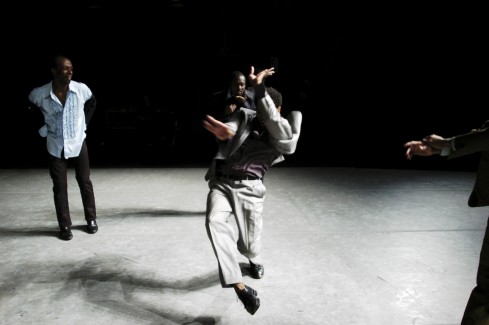Program Blends Curatorial Practices from Visual, Performing Arts

The Center for the Arts (CFA) has launched the Institute for Curatorial Practice in Performance (ICPP), which brings arts professionals together to examine curatorial practices from the fields of visual arts and performance, in order to better understand and improve upon the ways in which performance is managed, produced and presented in this country.
Starting in summer 2011, the ICPP will offer a professional certificate program in Curatorial Practice in Performance. Students will study artistic and curatorial practice, social and cultural context, and entrepreneurial strategies and complete an independent project in consultation with an advisor.
Through a close examination of the practical and theoretical concerns of performance work, graduates of the ICPP
certificate program will deepen their knowledge and skill base, enhance their professional relationships, and become better advocates for performance in the marketplace.
The certificate is a low-residency, nine-month program intended for early and mid-career working professionals. Students will complete work online in between on-campus intensives at Wesleyan. Dates for the 2011–12 on-campus intensives are: July 9–24, 2011, Nov. 18–20, 2011, and March 3–5, 2012.
Instructors and guest lecturers include ICPP Director Samuel A. Miller, Wesleyan professors Katja Kolcio and Claudia Tatinge Nacimento, and field professionals Doryun Chong of MOMA, Philip Bither of the Walker Art Center, and Judy Hussie-Taylor of Danspace Project. Artists in residence are TBA.
Applications for 2011-12 will be available online starting Oct. 15.
The ICPP was founded in 2010 by Miller and Pamela Tatge, director of the CFA, in partnership with Judy Hussie-Taylor, executive director of Danspace Project, in response to the dynamic dialog surrounding idea- and technique-based performance practice in the performing arts field.
The Andrew W. Mellon Foundation is partially funding the program.
“The ICPP aims to understand how performance can function within multiple landscapes, by building new models for understanding contemporary performance practice,” explains Tatge. “The ICPP will serve as a meeting-point for academics, professionals, and students to share ideas and resources in both formal and informal ways. By creating a rigorous and creative learning environment, enhanced and energized by the outside activities of its students and instructors, the ICPP will provide students and instructors with a base for their future professional endeavors.”
Currently there is no post-graduate program in the United States that is dedicated to addressing curatorial practice in performance. The ICPP looks to fill this gap, as an interest in contemporary performance continues to thrive even as the recent economic recession has hit arts organizations particularly hard. The ICPP is committed to training performing arts professionals who will build on the momentum of contemporary performance by using new information and resources as creatively as possible, while also understanding how historical practices have shaped our current trajectory.
For more information about the ICPP, visit www.wesleyan.edu/icpp or contact Program Coordinator David Milch at 860-888-3606 or icpp@wesleyan.edu.

